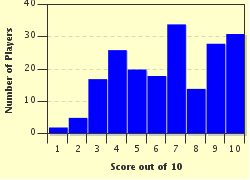Quiz Answer Key and Fun Facts
1. 'Ods Bodkins! Falstaff is in the tavern! Hostess, fetch a pottle of sack, anon! But what is a pottle of sack?
2. Oh, dear! Falstaff is visiting the merry wives of Windsor and calling for venison pasty. What does Falstaff want to eat?
3. Oh, blazes! Falstaff is in Gloucestershire blathering about Tewkesbury mustard balls to go with his gammon! What is Falstaff going to eat?
4. Go to! Falstaff sends his servant to a famous livestock market to buy a horse, and the women say Falstaff frequents "Pie Corner" and is a "Bartholomew Boar Pig"! To what location in England, now part of the City of London, do characters in these three scenes in Shakespeare's "2 Henry IV" refer? (A city in Virgina, USA, with the same name is known for its country hams.)
5. Sooth! Falstaff has eaten all the sweetings, crabs, pome-waters, apple-johns, leather coats, and codlings; and now he has scarfed down a dish of "last year's pippins with caraways"! What is Falstaff eating?
6. Oh, my goodness! Falstaff just mentioned "stewed prunes" in the presence of respectable wives! Why would manners of Shakespeare's time dictate Falstaff should apologize?
7. Fie, Fie! Falstaff, dressed as a rutting deer in the forest, wishes it would "rain potatoes,...hail kissing comfits, and snow eringoes"! What is the reputed effect of these foods?
8. Wfft! Falstaff stereotypically refers to a particular dairy product in connection with a nation on the marches of England, the home of the historical Owain Glyndwr and Sir Hugh Evans and Captain Fluellen (other characters in Shakespeare). What recipe, first appearing in print in 1725 and still served today, is named for this nation?
9. Zounds! In "1 Henry IV" Falstaff puns on "reasons" and "raisins" and says that even if "reasons were as plentiful" as another variety of fruit, he would not be compelled to give a reason (2.4.237). He also chides Prince Hal: "Shall the blessed sun of heaven prove a micher and eat..."(2.4.404-05). What is this plentiful fruit eaten by truant schoolchildren?
10. Hark! In "2 Henry IV" Falstaff is making counter-accusations against Mistress Quickly, to deflect the fact he owes her money! He says she's guilty of doing something related to food that is "contrary to the law" at a particular time of year. What is her defense?
Source: Author
nannywoo
This quiz was reviewed by FunTrivia editor
WesleyCrusher before going online.
Any errors found in FunTrivia content are routinely corrected through our feedback system.

